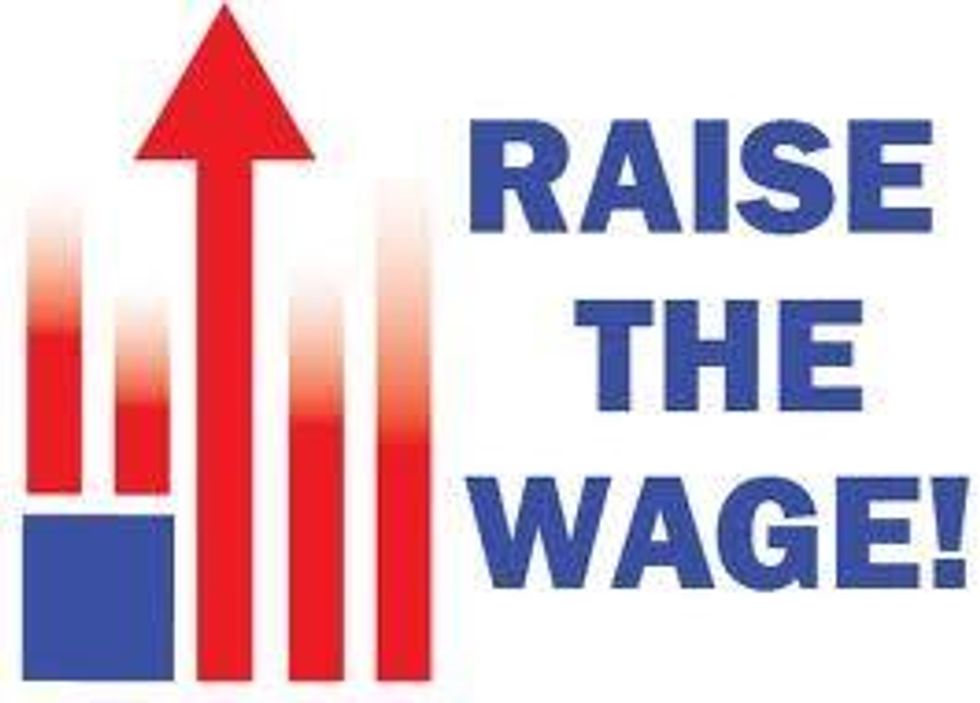A new bill introduced by Senator Tom Harkin and Rep. George Miller would raise the federal minimum wage to $10.10 per hour, and more importantly, peg it to inflation so that it would automatically adjust. The proposed wage hike is higher than the $9 per hour proposed by President Obama and is closer to what the minimum wage would be now if it had kept up with the rate of inflation. The bill also increases the tipped wage, which has not risen in twenty years.
Increasing the minimum wage is as no-brainer of a policy as it can get. One, it is extremely popular with the public. A remarkable 73 percent of voters support increasing the minimum wage to $10 an hour and tying it to inflation. Two, it would impact millions of workers--more than 30 million workers would receive a raise if the minimum wage was increased. Three, it would create a significant economic boost. Recovery from the Great Recession has been sluggish because consumer activity makes up 70 percent of U.S. economic activity and people just don't have money to spend. Putting money in the hands of low wage workers creates more economic stimulus because they are far more likely to immediately spend any additional income on previously unaffordable goods or services.
Moreover, we are no longer dealing with an economic reality where the minimum wage mainly impacts teenagers working summer jobs. The largest employment gains since the recession have been in low-wage occupation. Six of the top ten growth occupations are low-wage and 58 percent of new jobs created since the recession are in low-wage occupations. The median age of low-wage workers has risen to 34.9.
A minimum wage increase would also mainly impact large companies with over 100 employees, which employ two-thirds of low-wage workers, and not small businesses. These same companies are enjoying record profits and can well afford a wage increase. In fact, as a recent Demos report found, a wage of $12.25- 20 percent higher than the proposed wage increase- would cost only one percent of large retailers total annual sales and would result in an increase of $0.15 per shopping trip for the consumer. And, many cities and municipalities already have minimum wages higher than the federal floor. San Francisco's minimum wage is $10.55 and its unemployment rate is 6.5 percent, a full 1.4 percent below the federal unemployment rate.
So, what gives? Why is there such inaction on a policy that directly helps millions of Americans and is fundamental to upward economic mobility? The fact is that while increasing the minimum wage is important to average Americans, affluent and corporate interests either do not see it as a priority, or in the case of corporate interests, actively work to keep it low. As Demos' new report, Stacked Deck, shows, the priorities and preferences of the affluent donor class and corporate interests dominate policy making. And to these interests, policies that directly impact them, like cutting capital gains taxes, are far more important than raising the minimum wage. As a result, Congress repeatedly cuts the capital gains tax rate while failing to act on the minimum wage.
Raising the minimum wage really is a no-brainer. Getting it through this Congress will be difficult, if not impossible, but the reality is that the minimum wage must be increased. So, do it already.

